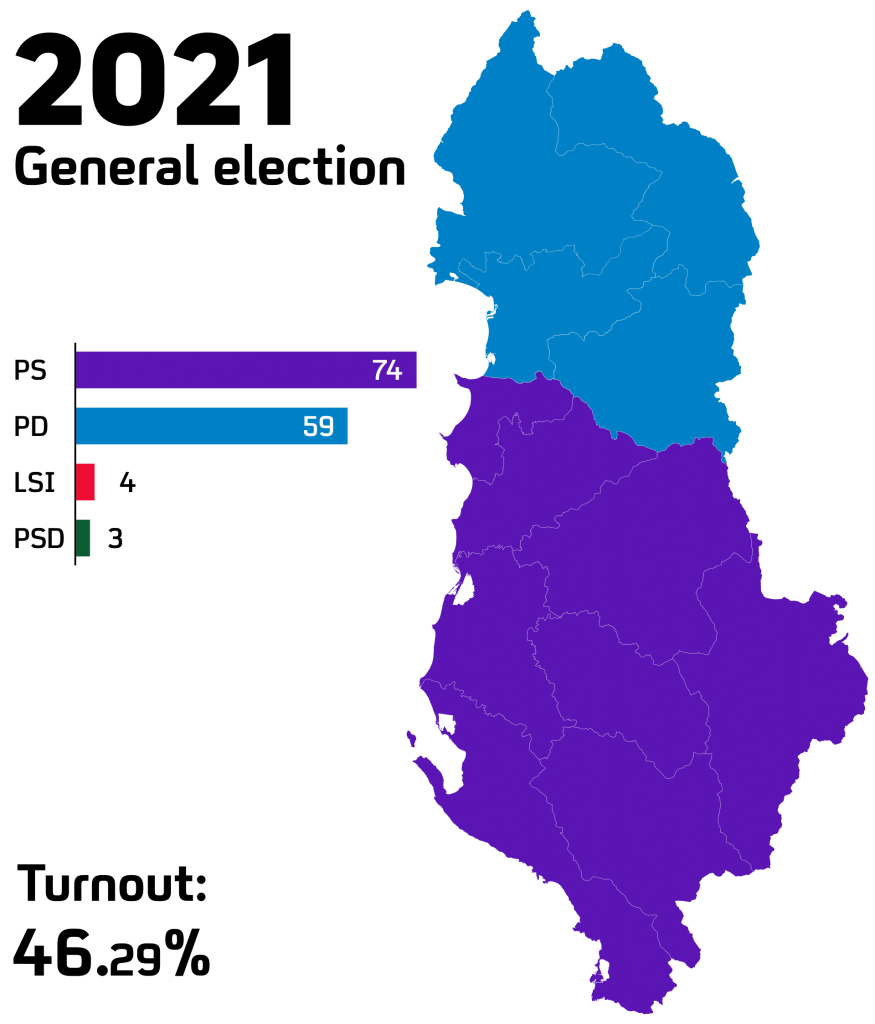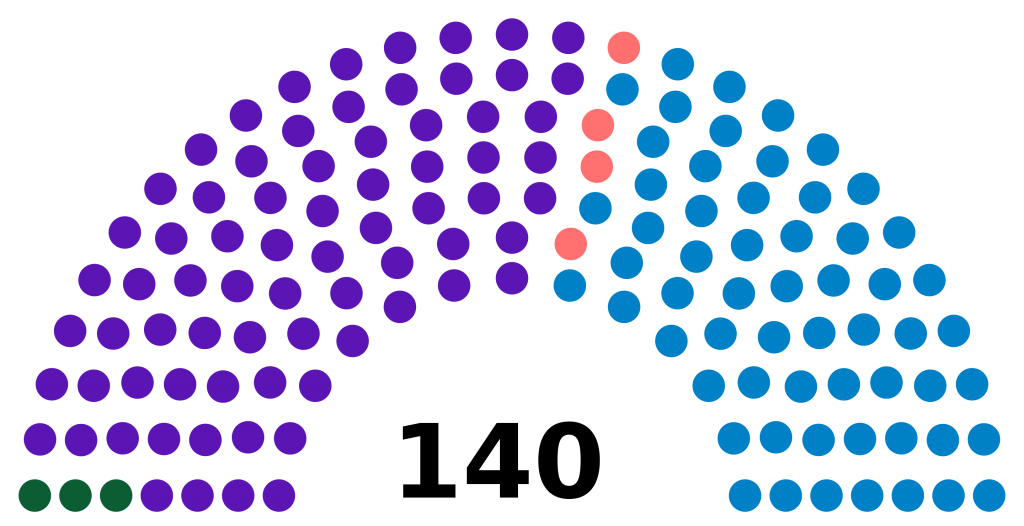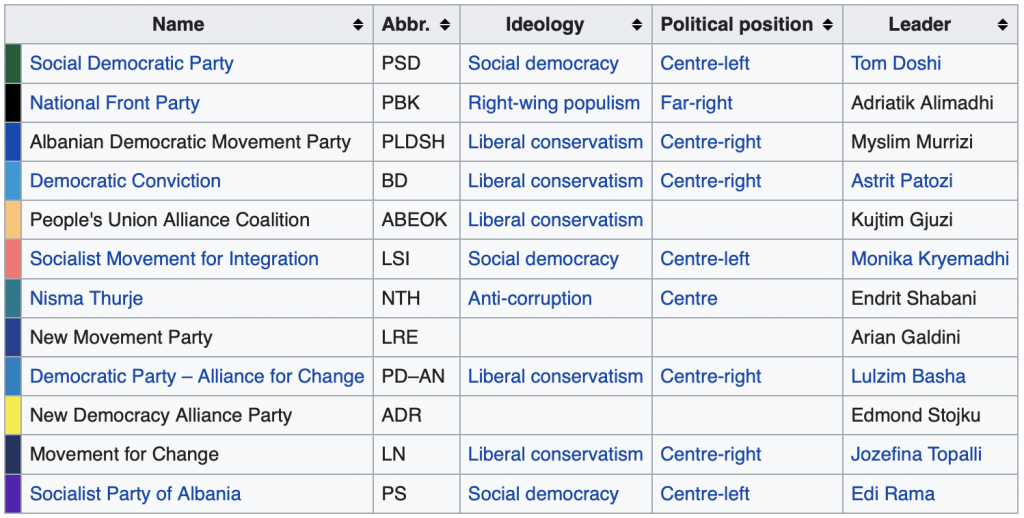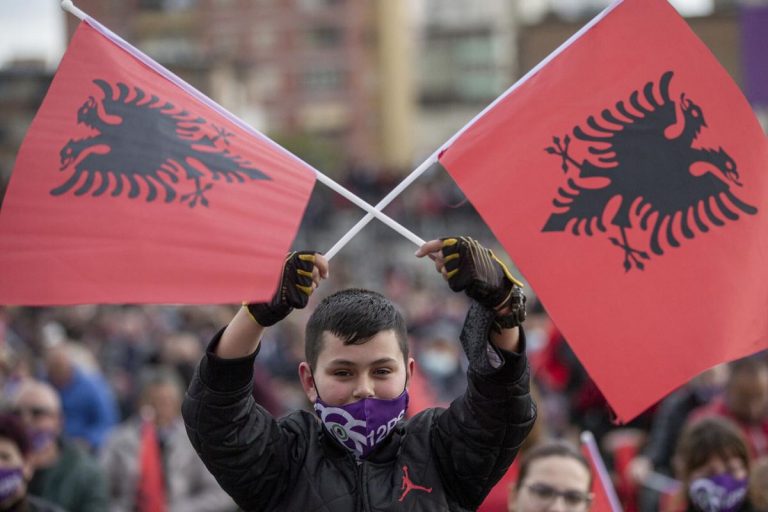The elections of the 25th of April in Albania saw the Socialist Party (PS) win for the third time with 74 mandates. The largest opposition party, the Democratic Party (PD) had 59 mandates, that of the Socialist Movement for Integration (LSI) had 4 mandates and other 3 mandates went to a smaller party in the north of the country.
The first effect of the political elections was the impeachment of the President of the Republic, Ilir Meta.
The catastrophic result of his party, LSI, which lost ten of the fourteen seats in Parliament, certainly accelerated his impeachment and a parliamentary commission for impeachment was soon established. Twenty videos will be examined, videos that testify his provocative and destabilizing attitudes in stark contrast to his role as institutional arbiter.
The outgoing premier, the socialist Edi Rama, has won his third term, thus becoming the longest-lived in the history of post-communist Albania. An unexpected result for a premier who had to face a devastating earthquake like that of 2020 and the Covid 19 pandemic.
Rama declared that the electoral success stems from the fact that the Albanians have understood that his government’s work was not finished and have given him the strength to be able to conclude it with serenity.
Certainly, the result of the socialists was favored by the suicidal choice of the main opposition party, the Democratic Party, led by Lulzim Basha, which left parliament in 2019 and defected the local elections last year. Now, almost all Albanian municipalities are governed by the socialists.

At the top of the list of priorities of the Tirana government today there is the start of negotiations for accession to the European Union. “This is the legacy we want to leave to our children,” Prime Minister, Edi Rama, said in the aftermath of the vote.
And for the Albanians, the European goal is truly a popular destination. All the polls show that it is the priority for more than ninety percent of the population.


For a country that has suffered in the past a low international profile, which has also cost it heavy losses of territories to its neighbors, and, during the Enver Hohxa regime, was completely isolated from the rest of the world (even the communist one), joining the European Union would be a historic opportunity to conquer a role and a dignity that have been missing for some time. The national pride of an emigrant people would be greatly strengthened by becoming part of that list of countries that have so far been the favorite destinations of the exodus that began with the fall of the regime.
Also for this reason, Prime Minister, Edi Rama, has proposed to the opposition leader, Lulzim Basha, not only to return to Parliament and the institutions, but also to join the new government that will take office in September. A proposal certainly welcome even to Western diplomacies who would like a united country with which to negotiate the entry into the EU. A country focused on the necessary reforms to become European and not divided by the violent polemics to which Albanian politics is accustomed.
Basha’s biography tells that he would be a very useful politician at the negotiating table with Europe. The President of the Democrats has long collaborated with European institutions as legal expert in Kosovo and he is an expert on European legislation. But that’s not all: Basha was part of the Albanian governments that approved the country’s entry into NATO and also the application for EU membership.

For the moment, the Democratic Party has replied no to Rama’s invitation, also because it is torn apart by internal controversies over the electoral defeat.
However, Europe, and even the US, seem to rely heavily on Albania as a faithful ally in the region. Since the beginning of May, the military exercise of NATO and USA, “Defender Europe 21” has started from the Albanian port of Durres, which mobilizes tens of thousands of soldiers from twelve countries over an area extending from the Baltic States, to the Black Sea and Ukraine, up to North Africa.
A decisive response from the Atlantic Alliance to the infiltration and destabilization attempts by Russians and Chinese in the Balkans.
Albania is the only country in the area that boasts an international political agenda that coincides one hundred percent with that of Western countries: a certainty of loyalty in that region where tensions are always high and alliances are unstable.
In the list of candidates for entry into the European Union, Albania came immediately after North Macedonia. After the historic name agreement signed with Greece, Skopje seemed to have solved its problems and unblocked its situation. But now Bulgaria is holding back the start of its negotiations with Brussels.
Thus, Tirana, which according to Brussels officials has taken all the necessary steps, could overtake its Eastern cousins and take the road to Brussels starting this summer.
Post Author
Author
-

Researcher on International Relations Middle East and Balkans
View all posts
CSSII- Centro Interdipartimentale di Studi Strategici, Internazionali e Imprenditoriali,
Università di Firenze, Italy, Albania




